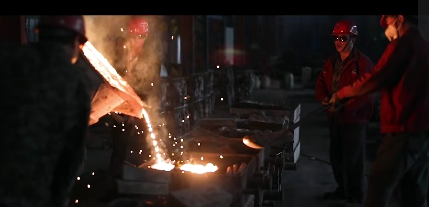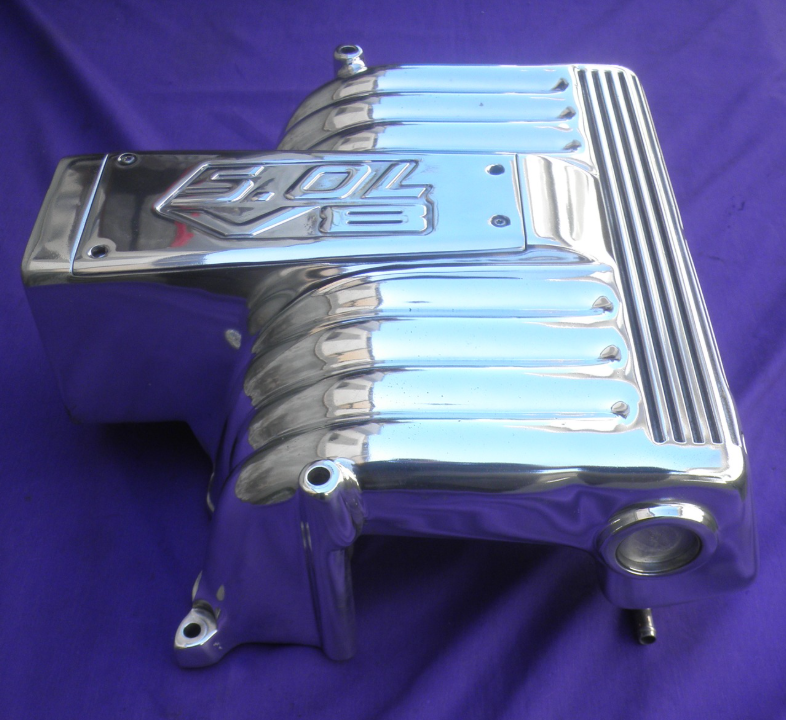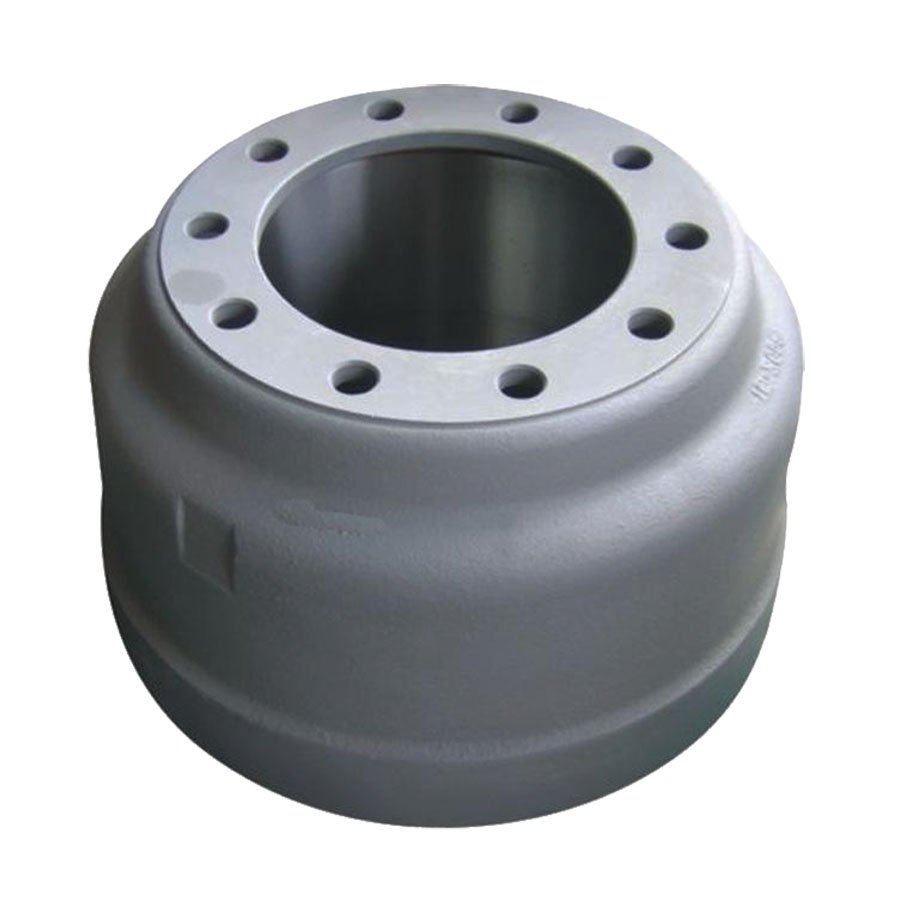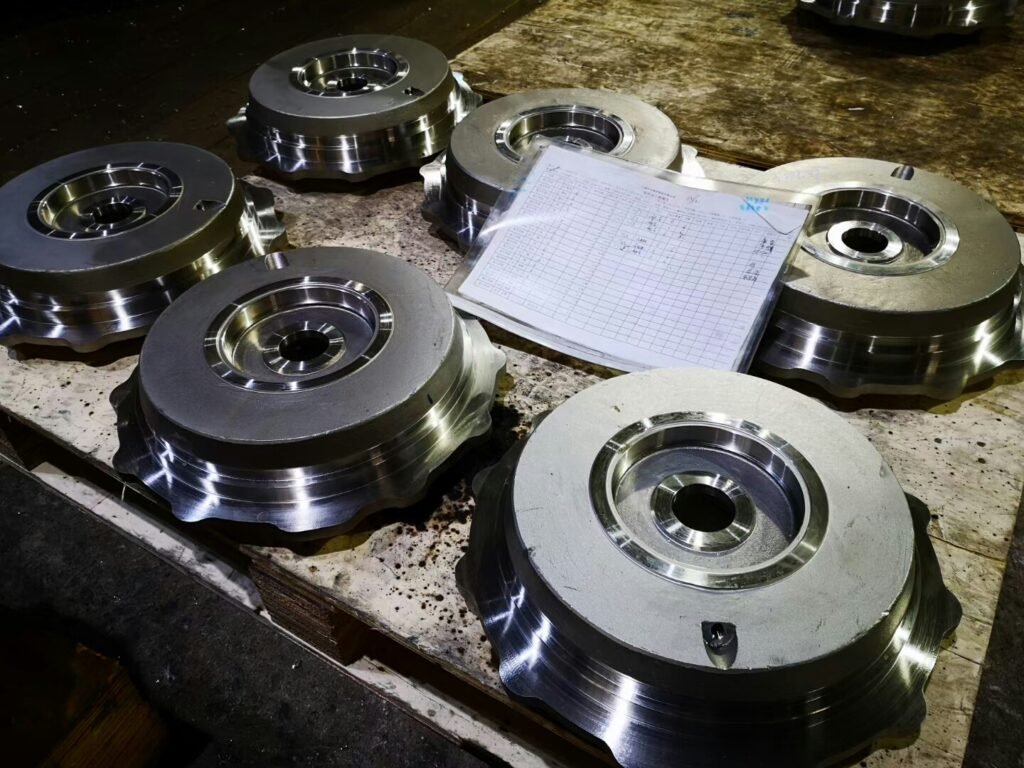Struggling with components that fail under high heat or corrosive conditions drains productivity and drives up costs through constant replacements. These failures put both operations and profitability at risk. Nickel alloy casting offers the solution—delivering exceptional durability, resistance to oxidation, and superior performance where conventional metals cannot compete. By leveraging nickel alloy casting, you can achieve long-lasting reliability, cut downtime, and secure a stronger return on your manufacturing investment.
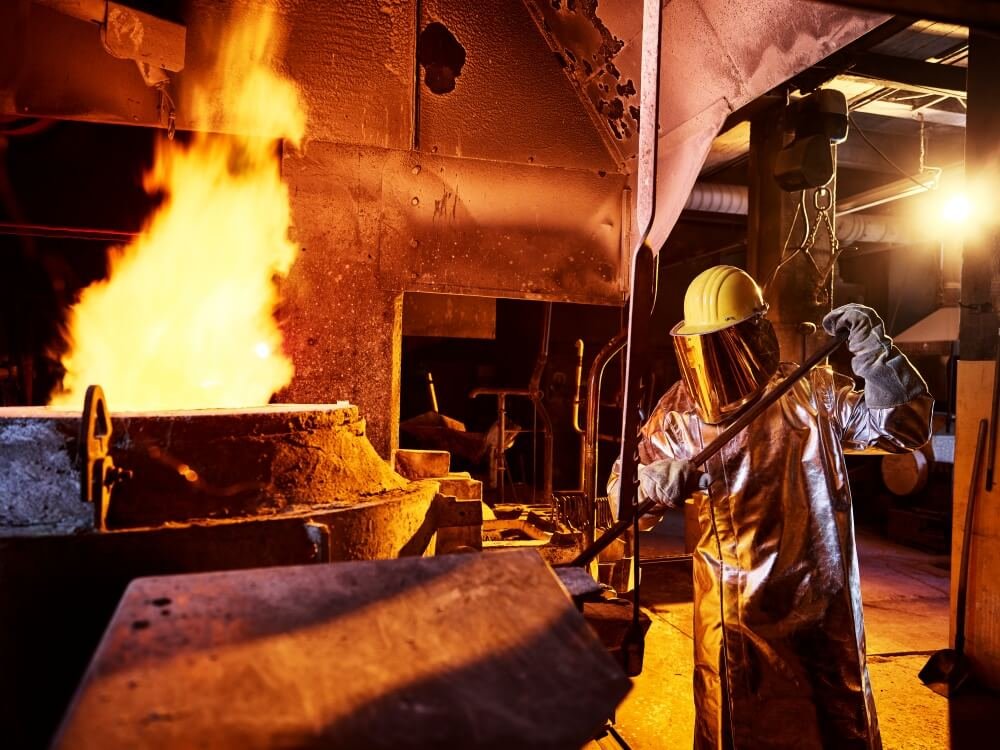
The Basics of Nickel Alloy Casting
Nickel-based alloys are exceptionally durable and built for harsh conditions. They offer a reliable foundation for components that must perform without failure.
What makes nickel a superior base metal?
You find nickel is a top choice due to its inherent toughness and ability to handle difficult settings. Here’s the deal: its properties are a fantastic starting point for creating high-performance materials. You can count on it for:
- Corrosion resistance.
- Oxidation resistance.
- Overall durability.
Why is oxidation resistance so important?
This property allows your parts to operate in high-heat and chemically active environments without degrading. What does this mean for you? It means longer service life and less frequent replacement for components used in tough industrial processes. You get better reliability in:
- Chemical processing.
- Heat treatment.
- Marine applications.
Key Takeaway: Nickel’s foundational properties make it the go-to material for castings that need to survive and perform in tough situations.
| Property | Benefit for Your Application |
|---|---|
| Corrosion Resistance | Prevents degradation from chemicals and moisture. |
| Oxidation Resistance | Maintains integrity at high temperatures. |
| Durability | Reduces failures and extends component life. |
This combination gives you a material that is both strong and stable for long-term use.
Wrought Nickel Alloy Casting Explained
This variant of nickel alloy contains very little carbon, giving it unique characteristics for specialized uses. It is known for its excellent performance across a wide temperature range.
What are its key mechanical properties?
Wrought nickel offers strong tensile properties and high conductivity compared to other nickel alloys. Look at it this way: this makes it perfect for applications where both strength and electrical or thermal performance matter. It provides:
- High electrical conductivity.
- Good thermal conductivity.
- Reliable corrosion resistance.
Where is this alloy typically used?
You’ll see this alloy in the chemical industry and for specific electronic components. But what does this mean for you? It’s the right choice for manufacturing transducers or items needing to shield against electromagnetic interference. Common uses include:
- Chemical processing equipment.
- Electromagnetic shielding.
- Transducer components.
Key Takeaway: Wrought nickel is your solution when you need a combination of physical strength and high conductivity.
| Application | Key Property Utilized |
|---|---|
| Chemical Industry | Corrosion Resistance |
| Transducers | Tensile Mechanical Properties |
| EMI Shielding | High Electrical Conductivity |
This alloy provides a versatile option for both industrial and electronic manufacturing needs.
Precision in Nickel Alloy Casting: Nickel-Iron
Nickel-iron alloys are prized for their controlled thermal expansion and soft magnetic properties. These traits make them ideal for precision instruments and components used in sensitive environments.
How does it achieve low thermal expansion?
An alloy containing approximately 36% nickel and 64% iron has an almost zero coefficient of thermal expansion at room temperature. Here’s the deal: this stability is critical for instruments that require dimensional accuracy. This specific composition gives you:
- Minimal expansion or contraction.
- High precision.
- Reliability at ambient temperatures.
What are its main industrial applications?
You can use this material for precision measuring tools or components operating at cryogenic temperatures. What does this mean for you? Your parts will maintain their shape and function perfectly, even when temperatures fluctuate dramatically. It’s used for:
- Thermostat rods.
- Precision measuring equipment.
- Parts used at cryogenic temperatures.
Key Takeaway: When dimensional stability is non-negotiable, nickel-iron alloy casting is the only choice for consistent performance.
| Application | Reason for Use |
|---|---|
| Precision Tools | Near-zero thermal expansion at room temp. |
| Cryogenic Items | Extremely low expansion at low temps. |
| Thermostat Rods | Predictable dimensional stability. |
This alloy guarantees that your precision components will perform as designed without thermal interference.
Magnetic Uses for Nickel Alloy Casting
Certain nickel-iron alloys are manufactured specifically for their soft magnetic properties. This makes them fundamental components in a wide range of electrical and memory devices.
Which compositions have magnetic properties?
Alloys containing a high nickel content, typically between 72% and 83%, exhibit excellent soft magnetic characteristics. The bottom line is this: this specific range is engineered for superior magnetic performance in electronic applications. These alloys are known for:
- High magnetic permeability.
- Low coercivity.
- Usefulness in alternating magnetic fields.
What devices rely on this type of alloy?
You’ll find these alloys in transformers, inductors, and various memory storage devices. What does this mean for you? These materials are behind the efficient operation of many core electronic systems you use daily. They are commonly found in:
- Transformers and inductors.
- Magnetic amplifiers.
- Memory storage devices.
Key Takeaway: For any application requiring controlled magnetic response, a high-nickel alloy casting is the industry standard.
| Alloy Content | Key Feature |
|---|---|
| 72%-83% Nickel | Soft magnetic properties. |
| <72% Nickel | Focus on other mechanical properties. |
Selecting the right nickel percentage is the key to achieving the desired magnetic performance.
Marine Grade Nickel Alloy Casting: Cupronickel
Nickel-copper alloys, also known as cupronickel, are the premier choice for marine applications. Their composition gives them exceptional resistance to corrosion in saltwater environments.
What makes it resistant to seawater?
The combination of nickel and copper creates a material that naturally stands up to corrosion from seawater. Here’s the deal: this makes it ideal for any part that will be submerged or exposed to salty air. It effectively resists:
- Pitting corrosion.
- Crevice corrosion.
- Biofouling.
Is it effective against alkaline solutions?
Yes, this alloy is also highly resistant to non-oxidizing salts and alkaline solutions. What does this mean for you? It provides a versatile solution for parts used in marine environments and certain chemical processing plants. You can use it confidently with:
- Alkaline solutions.
- Non-oxidizing salts.
- Brackish water.
Key Takeaway: Cupronickel is your best defense against saltwater and alkaline corrosion, extending the life of marine components.
| Environment | Cupronickel Performance |
|---|---|
| Seawater | Excellent corrosion resistance. |
| Alkaline Solutions | High resistance. |
| Non-oxidizing Salts | High resistance. |
This alloy ensures your components remain reliable in demanding marine and chemical settings.
High-Temp Nickel Alloy Casting: Ni-Cr
Nickel-chromium (Ni-Cr) alloys are designed for superior performance at elevated temperatures. They are known for resisting corrosion and scaling, which degrade other metals in high-heat conditions.
How does it resist high-temperature scaling?
The chromium content in the alloy forms a protective oxide layer on the surface at high temperatures. The point is: this layer acts as a barrier, preventing further oxidation and scaling. Key benefits include:
- Stable performance at high heat.
- Resistance to scaling.
- Extended component life in furnaces.
Does it have high electrical resistance?
Yes, this alloy variant is well-known for its high electrical resistance. What does this mean for you? It’s a perfect material for heating elements and other components where electrical energy needs to be converted into heat efficiently. It’s ideal for:
- Resistance heating wires.
- Industrial furnace elements.
- High-temperature sensors.
Key Takeaway: When your application involves extreme heat, Ni-Cr alloy casting provides unmatched resistance to scaling and high electrical resistance.
| Property | Application Benefit |
|---|---|
| High-Temp Scaling Resistance | Protects parts in furnaces and engines. |
| High Electrical Resistance | Ideal for creating heating elements. |
This makes it a top material for aerospace, power generation, and heat treatment industries.
Superalloy Nickel Alloy Casting: Ni-Mo
Nickel-molybdenum (Ni-Mo) alloys are high-performance superalloys used for their strength and resilience. The addition of molybdenum creates a material suitable for extremely demanding applications.
What is molybdenum’s role in this alloy?
Molybdenum, typically at 25%–30% content, significantly hardens the alloy and improves its strength at high temperatures. Here’s the deal: it provides exceptional resistance to reducing acids and other harsh chemicals. This gives the alloy:
- Superior strength.
- High-temperature stability.
- Resistance to non-oxidizing acids.
How is it used to make other special steels?
This alloy serves as a critical ingredient in the production of certain stainless steels and other special steels. What does this mean for you? The properties of Ni-Mo are foundational for creating even more advanced materials for specialized industrial use. It’s a key component for:
- High-performance structures.
- Specialty stainless steels.
- Corrosion-resistant steel grades.
Key Takeaway: For applications demanding the highest level of strength and chemical resistance, Ni-Mo superalloys are the solution.
| Alloy | Key Element | Primary Benefit |
|---|---|---|
| Ni-Mo Superalloy | 25-30% Molybdenum | Extreme strength and chemical resistance. |
This alloy forms the backbone of materials used in the most challenging industrial environments.
Strength in Nickel Alloy Casting: Ni-Cr-Fe
Nickel-chromium-iron (Ni-Cr-Fe) alloys are celebrated for their incredible strength at high temperatures. They are engineered to resist multiple forms of high-temperature degradation, making them perfect for severe service conditions.
How does it maintain high-temperature strength?
The synergistic combination of nickel, chromium, and iron creates a stable microstructure that maintains its integrity under heat and stress. Here’s the bottom line: this allows your components to operate reliably in environments like industrial furnaces or gas turbines. This alloy provides:
- Excellent creep resistance.
- High tensile strength at temperature.
- Structural stability under load.
What is carburization resistance?
Carburization is a form of high-temperature corrosion where carbon absorbs into the metal, making it brittle. The point is: Ni-Cr-Fe alloys are formulated to resist this process, maintaining their ductility and strength. This resistance protects against:
- Embrittlement from carbon.
- Surface degradation.
- Premature component failure.
Key Takeaway: For structural parts that need to stay strong and ductile at high temperatures, Ni-Cr-Fe casting is the proven choice.
| Property | Advantage |
|---|---|
| High-Temp Strength | Maintains structural integrity under heat and load. |
| Carburization Resistance | Prevents embrittlement in carbon-rich environments. |
This alloy ensures long-term reliability for parts exposed to severe heat and reactive atmospheres.
Corrosion-Proof Nickel Alloy Casting
By adding elements like molybdenum (Mo) and copper (Cu) to Ni-Cr-Fe alloys, you can create castings with exceptional corrosion resistance. This makes them suitable for very specific and aggressive chemical applications.
What do Mo and Cu add to the alloy?
Molybdenum and copper enhance the alloy’s ability to withstand a wide range of corrosive media, especially certain acids. Here’s the deal: these additions create a material that can survive where standard stainless steels would fail. The benefits include:
- Resistance to sulfuric acid.
- Resistance to phosphoric acid.
- Improved pitting resistance.
What are its niche corrosion applications?
You’ll find these alloys in chemical processing equipment that handles highly corrosive substances. But what does this mean for you? If you’re dealing with aggressive chemicals, this is the alloy that provides the necessary protection for your equipment. Common uses are in:
- Pollution control systems.
- Acid production plants.
- Specialized chemical reactors.
Key Takeaway: When standard alloys aren’t enough, Ni-Cr-Fe alloys fortified with Mo and Cu offer the ultimate corrosion resistance.
| Alloying Element | Added Benefit |
|---|---|
| Molybdenum (Mo) | Boosts resistance to reducing acids. |
| Copper (Cu) | Enhances resistance to sulfuric acid. |
These additions allow you to tailor the alloy’s performance for the most aggressive environments.
Choosing Your Nickel Alloy Casting
Selecting the correct nickel alloy is about matching the material’s properties to your application’s demands. Considering the environment, required strength, and budget will guide you to the right choice.
What environment will your part be used in?
You must first consider the operating conditions, such as temperature and chemical exposure. The bottom line is this: an alloy designed for high heat won’t perform well in a corrosive marine environment, and vice versa. Key factors to define are:
- Operating temperature range.
- Presence of corrosive chemicals.
- Exposure to moisture or saltwater.
What mechanical properties do you need?
Next, you need to identify the physical demands on the component. Here’s the deal: some applications require high tensile strength, while others need magnetic properties or thermal stability. Consider if you need:
- High strength or hardness.
- Thermal expansion control.
- Electrical or magnetic properties.
How do you balance cost and performance?
Finally, you must weigh the performance gains of a specialized alloy against its cost. What does this mean for you? Choosing a more advanced alloy can prevent costly failures and downtime, justifying the initial investment. You should analyze:
- Initial material cost.
- Expected service life.
- Cost of potential failure.
Key Takeaway: A careful analysis of your application’s needs will lead you to the most effective and economical nickel alloy casting.
| Consideration | Question to Ask |
|---|---|
| Environment | Will it be hot, wet, or chemically aggressive? |
| Properties | Does it need to be strong, stable, or magnetic? |
| Cost | Is the upfront cost worth the long-term reliability? |
Answering these questions ensures you select a material that delivers performance and value.
Conclusion
You don’t have to settle for parts that fail under harsh conditions. Nickel alloy casting solves problems of corrosion, high-temperature degradation, and mechanical stress. We offer a range of nickel alloys tailored to your specific needs, delivering the performance and reliability your operations demand. Our vision is to be your partner in building more durable and efficient systems, one high-performance casting at a time.
Frequently Asked Questions (FAQ)
Q1: Can I use nickel alloy casting for cryogenic parts? A1: Yes, you can. Nickel-iron alloys are specifically designed for this purpose because their extremely low thermal expansion rate prevents cracking or warping at cryogenic temperatures.
Q2: What’s the best nickel alloy casting for saltwater exposure? A2: Absolutely, the best choice is a nickel-copper alloy, known as cupronickel. It is formulated to offer superior corrosion resistance against seawater and other saline solutions.
Q3: How do I know if I need a Ni-Cr vs. a Ni-Mo alloy? A3: It depends on your primary challenge. Choose a Ni-Cr alloy if your main concern is oxidation or scaling at high temperatures, and select a Ni-Mo alloy if you need extreme strength and resistance to reducing acids.
Q4: Can I get a custom nickel alloy casting composition? A4: Yes, you can. We work with clients to create custom compositions because we understand that unique applications often require tailored material properties for optimal performance.
Q5: What’s the best nickel alloy casting for electronics? A5: Certainly, wrought nickel is an excellent choice for electromagnetic shielding. Additionally, specific nickel-iron alloys are perfect for magnetic components like transformers and inductors.


